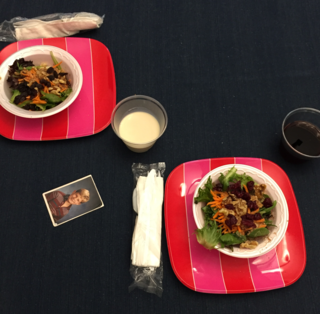An Innocent Question
An Innocent Question
A grieving father shares his insights into a dilemma that many face.

Source: Robert Goor
The answer, when it comes, is a shock. "I have three children, two living and one deceased." And now, what do you say? This is your unspoken question; I hear it in your uncomfortable shifting in your seat and the disappearance of your smile.
My 8-year-old son, Andrew, was hit by an SUV and killed in May of 1988. And the not-so-subtle message from our society to those of us who are grieving is, "Just get over it. It doesn't do any good to dwell on the past. I wish you could live in the present."
But we are changed forever by those we love in life and equally by their passing. And so, it has not, in fact, been a long time since Andrew died. The experience of that day 29 years ago lives timelessly in my heart. From then on, I was left to try to make sense of what defied reason, to accept what was unacceptable. Part of me knew that Andrew was gone, and yet another part reeled in disbelief — and still does. I often feel that I stand with one foot in each of two worlds, this living reality and the unknown beyond, mourning for two: Andrew and myself.
To avoid total emotional isolation, I sought companionship from trusted friends and group support from others who suffered losses. I learned that shared tears are far less salty than solitary ones and that open expression lessens the pain of grief. In telling our stories, we learned that we have more in common than we have differences. And, perhaps, most of all, we learned that we are not alone. I listened to others' stories, and I learned to care again — to allow someone new a place in my still fearful heart.
And I learned what truly endures in this uncertain existence: "It is a glimpse of play out an open window, a knowing smile at bedtime, a sleepy head resting on a shoulder, a sigh of contentment, a cheerful wave hello. It is a moment of warmth, a secret shared breathlessly, a casual glance that says nothing in particular, but says all. It is a quick impression, a flash of pride, a stolen hug, a silent tear. It is a thousand, thousand such moments, each of them a heartbeat, all of them a lifetime. It is what we were to each other. It is what we are to each other. It is all that happened. It is all that didn't."
I wrote those words to my son in one of many letters meant to keep our relationship alive and to help find myself again. Those letters have now been published as a book, called Dear Andrew.
Over the years, I have evolved so that my grief is no longer as raw as it once was. Rather, it has settled like a fluid in every cell in my body, and seeks balance with my every thought and movement.
"I'm all right now," I wrote to Andrew. Perhaps this is what it means to heal.
Still, your cafeteria question is not simple. Grief is not simple. And grievers are not living in the past, but in an eternal paradox where their loved one is both present and absent. It is a bittersweet state.
What can you say to me? This one phrase is safe and effective "Oh, I am so, so sorry." That's all, no more.
And, gratefully, I will say, "Thank you."
I would like to know, have you had similar experiences? Does your sorrow feel welcome among the company you keep?
In the future, I will write about grief, but also about other topics – about living, learning and teaching, for example. I look forward to our interactions.
And, gratefully, I will say, "Thank you."
I would like to know, have you had similar experiences? Does your sorrow feel welcome among the company you keep?
In the future, I will write about grief, but also about other topics – about living, learning and teaching, for example. I look forward to our interactions.

